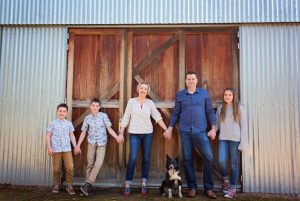Foster care gives children a safe, secure and nurturing place to stay while their family is unable to care for them. As foster carers come from a range of circumstances – in a relationship, single, older, younger, with or without kids, working or at home – there are various forms of placement available.
There are four different types of foster care:
- Short term care ranges from several days to several months and assists children preparing for suitable long term carers or while temporary issues in the family are being resolved.
- Emergency care is usually arranged at short notice, and consists of an overnight or weekend stay while, for example, waiting for courts to open on a Monday or while short term care is being arranged.
- Respite care gives long term foster carers and their families a regular break, such as one weekend a month.
- Long term care is provided where children are unable to return to their families, and require a permanent home in foster care. Ideally, children return home once the issues in the family are resolved, but where this is not suitable, children may stay in care for the long-term.
The respite care experience
Louise and Christopher Toland, foster carers since September 2016 and parents to children aged eight, 11 and 12, opted for respite care. For several months Louise and Christopher have provided respite care for two young children aged one and four years old. The children stay one weekend a month with the Tolands.
While some parents may have reservations about fostering while parenting their own children, Louise says the experience has provided huge benefits for her family:
“Fostering has had a really calming influence on our own children,” says Louise, “by giving them a sense of responsibility. They have so much patience with the kids. We think it’s important for kids to know that not every child has a warm, safe home. We have regular discussions around the dinner table, such as where our foster kids come from and how that might influence their behaviour.”
“Our kids talk about it at school and my son’s friends have met the foster kids. I think we’ve opened up the conversation and contributed to a wider community awareness of fostering.”
Louise explains that while her younger son may occasionally get frustrated that the younger child wants his attention all the time, there has been no resentment from her own children toward the new family members.
In preparation for this interview, Louise asked her children what they enjoyed about foster care, with the following responses:
Her 12 year old daughter likes “bathing the baby, and that he has started recognising and smiling at her”, while her youngest son enjoys “cuddling the baby and giving him the bottle”. “I like seeing mum making the cuddly toys talk like she did for me,” says her 11 year old, referring to his own bedtime routine as a toddler when Louise used her ventriloquist skills to make the soft toys “talk”.
When asked about the difficult parts of fostering, Louise says that it has certainly become easier over time. In the beginning, the children were often sick when they arrived, and the baby was particularly unwell on his first weekend. The behaviour of the older boy has been challenging, but Louise says that in only a few months his behaviour has improved greatly by putting boundaries and ground rules in place.
Louise recalled a moment which made it all worthwhile: “We have a basketball hoop out the back, which is lowered for the four year old. The family all play together, and my husband said, ‘I reckon you’ll get it through the hoop next time you’re here’. And he did! He came roaring into the house saying ‘you’re not going to believe it Louise! I got a goal!’ He was over the moon. The joy that it gave all of us was just wonderful.”
*The young people featured in the image are the carer’s own children.


